What Happens When You Don’t Find What You’re Looking For?
By: Jay White
When…
- The best goaltenders don’t stop every shot
- The greatest hitters don’t bat 1,000
- No quarterback completes every pass
Unless fortunate enough to work where the largest body of water is the size of a backyard swimming pool, there is going to come a time when the team does not find what they are searching for.
But then what?
Every proper search is a successful search. Why? Because, at its conclusion, you will know where the target isn’t. While some teams judge success on finding where things are, others adhere to the adage that, “Only through failure can one truly know his or her limits.”
By using this mindset and honestly reviewing unsuccessful searches, a public safety dive team can ask, if they had to do the same search again, what would they do differently? This can help identify gaps in the team’s repertoire of skills and abilities. It can also work towards filling in these gaps to build on the success rate of operational calls.
Teams can often answer the question “Why wasn’t the subject located?” with a simple statement. Each of these is an opportunity to improve.
No matter how well you search, you simply cannot find what is not there. Sometimes a team searches where the target isn’t. This can happen for any number of reasons, such as:
- No witnesses
- Intentionally misleading witnesses
- Nolast known point
- High current areas
Debriefing such a dive may not uncover options other than the ones already used.
Last known point
Public safety dive teams understand the importance of the last known point. This is critical to the success of the operation. What’s key here is the witness interview. You need to ask:
- Who did the interview?
- How was it done?
- Where was it done?
Interviewing a person traumatized by watching someone — perhaps even a loved one — drown can be a difficult and gut-wrenching experience. Because of this, those investigating sometimes remove witnesses from the site before interviewing them, in an effort to comfort and console. This can compromise the accuracy of witness statements. To be accurate, witness statements must be:
- Taken on scene
- In the areas where the witness was at the time of the incident
- As soon after the incident as possible
Failure to do so can lead to days of fruitless searching. Too often, an investigator tells the dive team that, “The witness is not coming — but that’s okay because he explained exactly where the victim was last seen.” Unfortunately, they told the investigator this while off-site. As a consequence, the team wasted time searching the wrong area.
First-hand information is vital when determining the last known point. If an attempt to spare the witness further discomfort results in second- or third-hand information, it weakens the accuracy of the search’s starting point. To determine the accuracy of witness statements, ask:
- Were all the witnesses interviewed?
- Were they interviewed at the scene?
- Were they interviewed individually?
- Were they interviewed in the exact location they were when the marker buoy was set?
Depending on the answers you get, you may need to re-think your search.
Did lack of equipment hinder success?
Dive teams can always use more gear. If you can keep track of what was needed and not available, it will help prioritize your wish list. For example:
- A team that spends a lot of time searching in black water may prioritize a drop down or side scan sonar.
- A team that spends considerable time in soft bottom ditches looking for evidence may have a greater need for a metal detector.
Ask the question, “What piece of equipment that we did not have might have increased the likelihood of success?” This will help ensure a team has the right tools for the job.
Did lack of training hinder success?
Public safety dive teams need to acknowledge when a dive is beyond their capabilities or skill set. There is no room for bravado or “winging it” in public safety diving. Performing an operation they are not properly trained for is asking for trouble.
If a team finds they are unable to conduct dives because they do not have the skills and training to do so safely, they need to document this. The will help prioritize and justify training needs to suit their operational requirements.
For example, teams working in an area where the deepest water is 25 feet deep may be better served by taking Limited Visibility and Contaminated Water Diver training than they would Deep or Technical Diving courses.
As with equipment, you want to document any dives you are unable to perform due to lack of training. Comparing this to a list of available courses will help identify the ones that may best fit the team’s needs.
Beyond the normal realm of training
Along with training, are there new or innovative search techniques that would have assisted in locating the target? Sometimes these methods come from outside the public safety diving world. For example:
- A team is asked to search a large area for extremely small items.
- After failing to locate what they are after, the team trains for and adopts Underwater Archeology as well as Scientific Diving grid search techniques for small article searches.
Thus, the team is being proactive. When the next call of this nature comes along, the team implement the new skills and techniques and successfully locate key pieces of evidence for an ongoing investigation.
New techniques do not have to be formalized or even widely known. There are a lot of very knowledgeable and experienced public safety dive teams. What works for one may work for others. It is not unusual for teams to develop their own unique method of searching in a particular situation or environment. Through networking and keeping the lines of communication open, ‘best practices’ can be shared.
Reach out to other dive teams, tell war stories, share ideas and, if you have come up with a great idea that has worked well for your team in the past, brag about it and spread the wealth. Do not hesitate to pass this information along to someone who could benefit from using it.
Debriefings are crucial
The importance of post-operation and critical incident stress debriefings are well-known and well documented. They can:
- Provide a record of what worked and what did not.
- Assist in the prevention and treatment of post-traumatic stress disorder.
Formal debriefings are common among many teams. When they are not, quiet conversations between divers following particularly dramatic scenes are equally common. Unfortunately, such debriefings and conversations are sometimes downplayed or nonexistent when a victim is not located.
When reviewing a post-dive debrief on unsuccessful dives, note if the debrief included a member debrief. There is a tendency to downplay or dismiss these if there were no traumatic or repugnant remains to be seen, handled or dealt with. However, there is not a more heart-wrenching experience than having to explain to parents that the dive team was unable to find their child and that the team was done searching and was going home.
Just because nothing was found does not mean team members are not carrying baggage from the operation. A detailed debrief with team members following each dive operation — regardless of the outcome — will help every member process what has taken place.
So, what do you do if at first, you don’t succeed? Review it, study it, learn from it, talk about it, prepare, train and, of course, try, try again.

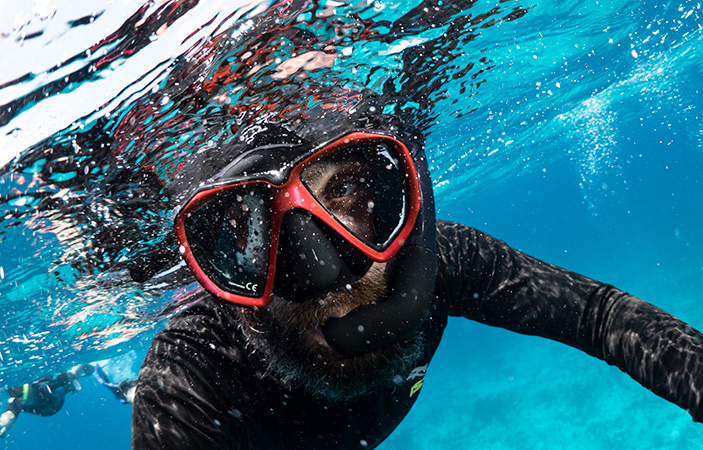
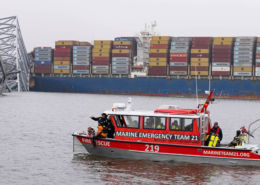 Photo By: Defense Visual Information Distribution Service
Photo By: Defense Visual Information Distribution Service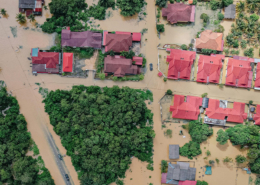

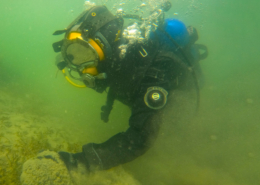
 Y. ZIN
Y. ZIN

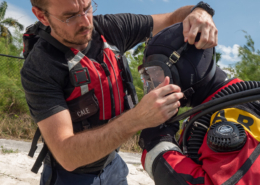
Leave a Reply
Want to join the discussion?Feel free to contribute!